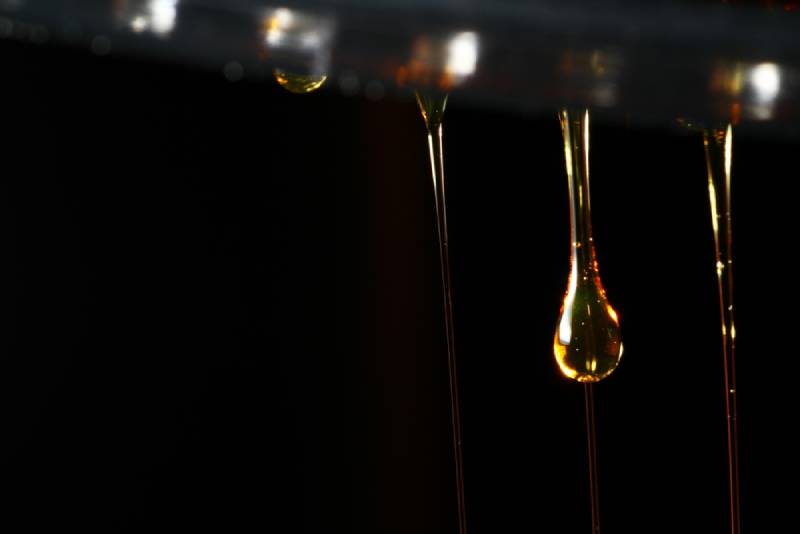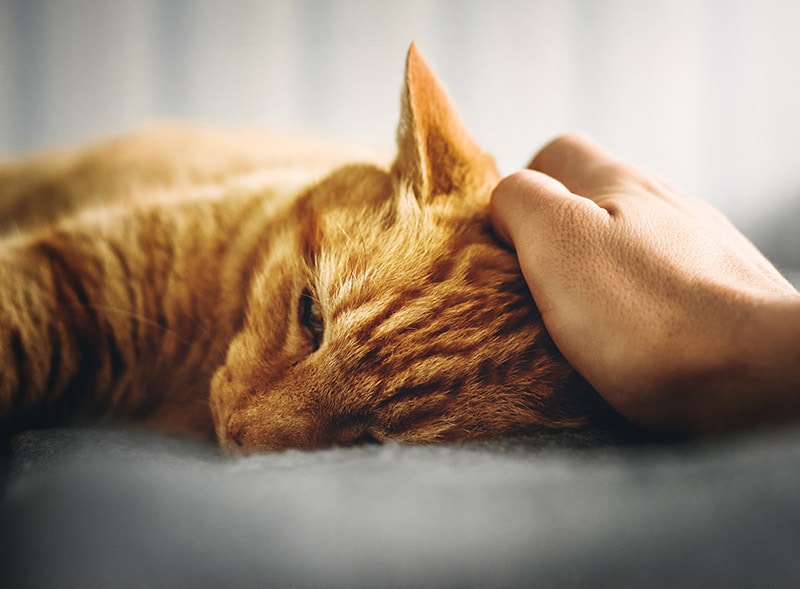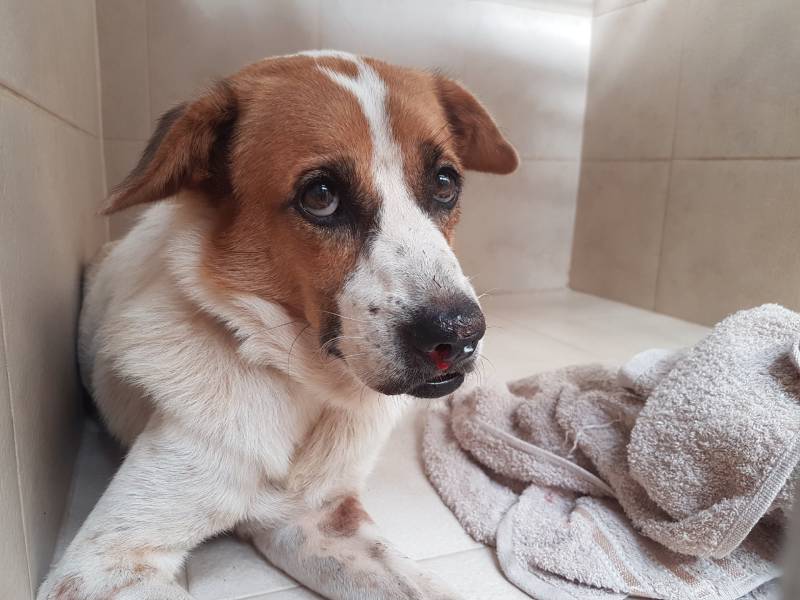My Dog Swallowed a Tennis Ball: Our Vet Explains What to Do

Updated on
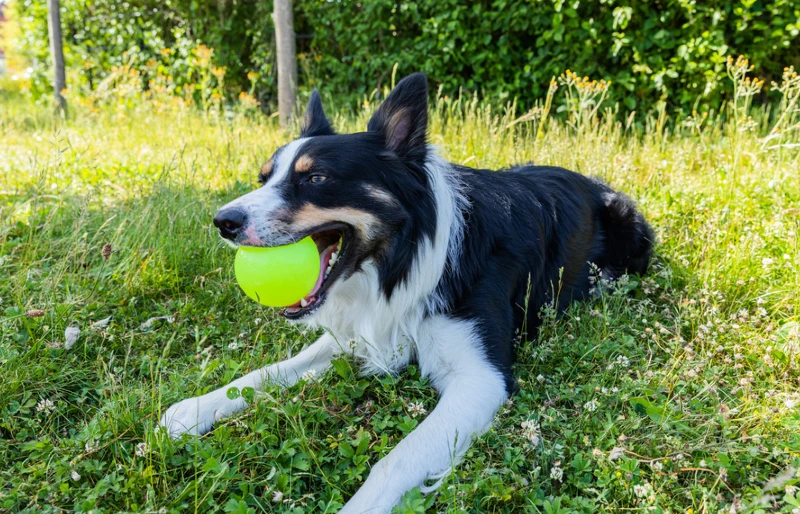
Click to Skip Ahead
If your dog has eaten a tennis ball, contact the vet immediately. They can recommend several options in order to deal with the situation safely.
Dogs use their mouths to explore their surroundings. You likely have often seen them with various things in their mouths, happily chewing on them! A common item is a tennis ball, which is frequently used for playing fetch. As with any item that ends up in a dog’s mouth, though, there is a risk that the tennis ball will be shredded into pieces and swallowed. Large dog breeds can even swallow the tennis ball whole.
If your dog likes to chew various objects, it won’t be long before they start chewing tennis balls. Therefore, you must take precautions to avoid serious health problems and always supervise your dog when chewing their toys.
What to Do if Your Dog Has Swallowed a Tennis Ball:
If your dog has swallowed a tennis ball, it is a problem and represents a medical emergency. If they only swallowed parts of it, it is possible that there will be no harm, and your dog will pass them in their feces in a day or two. Here’s what you can do.
1. Check if Your Dog Is Breathing Normally
Check your dog’s mouth to see if they are breathing normally. The tennis ball or parts of it can get stuck in your dog’s throat and lead to suffocation.
Gently open your dog’s mouth and look into their throat. If you see the tennis ball or pieces of it obstructing the airways, try to remove them. If you do not succeed, take your dog to the emergency vet immediately. If you do not see anything in your dog’s throat and they are breathing normally, it is possible that they swallowed the tennis ball or the pieces entirely.
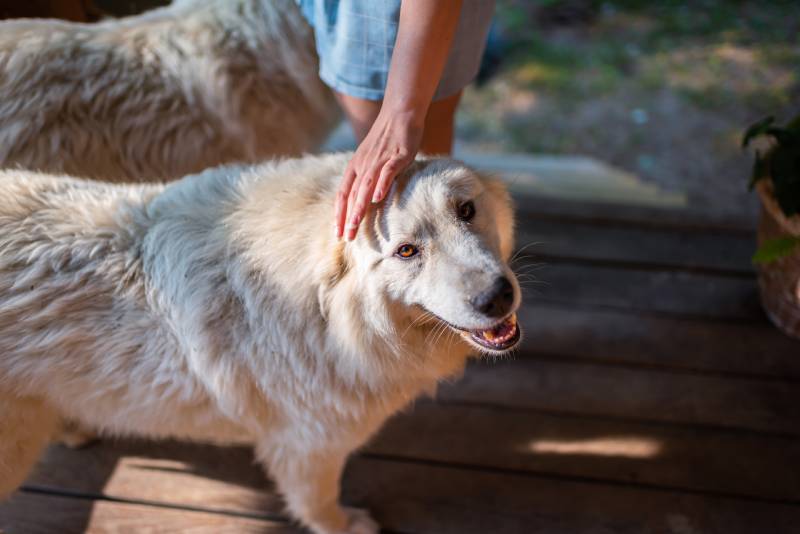
2. Look For the Tennis Ball or Its Remains
If you were not around when your dog ate a tennis ball, but you suspect that it happened, look for the ball or its remains. This way, you will be able to determine how much they ingested.
The size of your dog matters in such situations. For example, small dogs are exposed to the risk of intestinal obstruction if they swallow a small piece of rubber (since they have much smaller intestines compared to large dogs), while large dogs can eliminate the small piece of rubber along with their feces.
3. Call the Vet and Monitor Your Dog for Possible Clinical Signs

Once you have determined how much your dog ingested of the tennis ball, you have two options: Monitor your dog for potential clinical signs if they have swallowed a very small piece and they are large enough to comfortably pass it, or call the vet if that’s not the case.
If your dog does not show signs of illness for several days, they may eliminate the tennis ball pieces with their feces. If vomiting, diarrhea, constipation and straining to defecate, lethargy, abdominal pain or distension, or loss of appetite occurs, contact your vet immediately. The pieces of rubber can lead to intestinal obstruction and put your dog’s life in danger if not treated quickly. If your dog has swallowed pieces of rubber, the vet may recommend inducing vomiting at the clinic if no more than 4 hours have passed since the incident.
This is the safest option, as it ensures the pieces of the foreign material are removed from the dog’s stomach, reducing the risks of them causing a blockage. But keep in mind, you need to call your vet immediately upon your dog swallowing the pieces of the tennis ball, as after 4 hours elapse, the pieces will likely enter the small intestine, and your vet’s treatment options will be quite limited. At that stage, the option will be to observe the dog for signs of an obstruction before proceeding with imaging and surgery.
Tennis balls that have been swallowed whole will never be eliminated along with the feces, no matter how big your dog is. If your dog has swallowed a whole tennis ball, contact your veterinarian immediately. They may recommend endoscopy, emesis, or surgery to remove it.
You can contact your veterinarian even if you only suspect that your dog swallowed a tennis ball. They will recommend X-rays to try to locate the tennis ball or its pieces.
Can Swallowing a Tennis Ball Harm My Dog?
Swallowing a whole tennis ball or only parts of it can be dangerous for dogs. Here is what a tennis ball can cause if your dog tries to swallow it or eats it:
- Choking hazard
- Obstruction of the digestive tract
- Tooth decay if chewed on consistently over months and years, particularly combined with sand from the beach
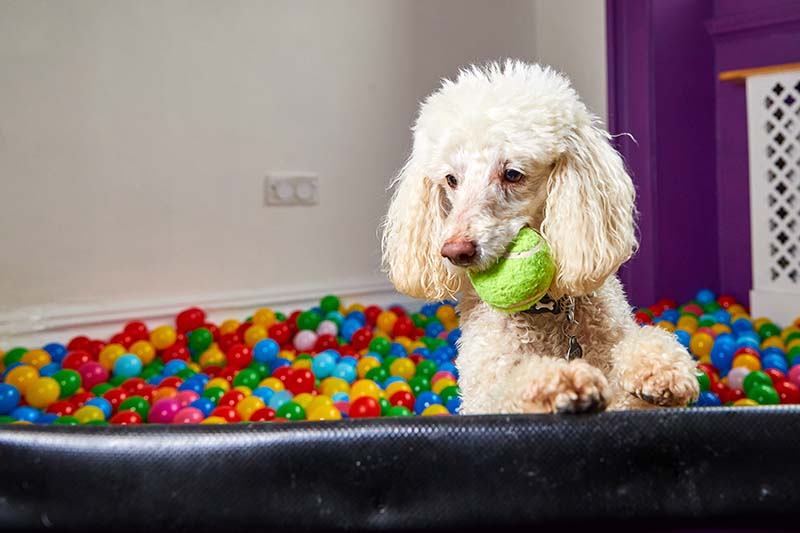
Choking Hazard
Tennis balls or any other objects that fit in a dog’s mouth present a danger of suffocation. The tennis ball can block the airways, and your dog can die from suffocation. For this reason, a swallowed tennis ball represents a medical emergency and must be intervened immediately. Clinical signs of a dog choking on a tennis ball or parts of it may include:
- Distress or panic
- Excessive salivation
- Gagging
- Retching
- Coughing
- Pawing at the mouth or rubbing their face on the ground
- Difficulty breathing
- Blue mucous membranes
- Collapse
Always make sure any balls or toys are the right size for your dog and are not too small to be swallowed.
Obstruction of the Digestive Tract
Like any other foreign object that can be ingested by dogs, tennis balls can obstruct the digestive tract, especially the small intestine. When an obstruction occurs in the digestive tract (esophagus, stomach, or intestine), nutrients can no longer be ingested or eliminated, whether they are liquid or solid.
Young dogs are more prone to this condition because they are often too curious and will chew and swallow most things. Tennis balls are made of indigestible materials (rubber, cotton, wool, and nylon), which means that once they reach the digestive tract, they will not be digested and may get stuck anywhere from the stomach to the rectum, depending on the size of the pieces and the dog’s breed size.
- Vomiting
- Reduced or absent appetite
- Dehydration
- Weight loss
- Bloating
- Abdominal pain
- Distended and firm abdomen
- Lethargy
- Straining to defecate
- Fever
- Weakness
- Collapse
Other clinical signs that may occur depend on the severity of the condition.
All these clinical signs are related in that the appearance of the first clinical sign will trigger the rest. As a result, once liquids and solids accumulate in the stomach or just before the blockage, vomiting will occur because the intestine is blocked and the stomach content cannot pass.
With the occurrence of repeated vomiting, significant dehydration will also occur, which in turn, will lead to an imbalance of electrolytes in the body. In intestinal obstruction, the accumulation of toxins and bacteria in the blood can also occur if the intestine has become fragile and necrotic, started leaking intestinal content, or has fully ruptured at the site of blockage.
Once the vomiting (and dehydration) starts, your dog will also present states of weakness, loss of appetite, weight loss, and diarrhea, as well as straining to pass feces or reduced defecation. As a result, intestinal obstructions are severe conditions that can put your dog’s life in danger if you do not intervene immediately when the first clinical signs appear.
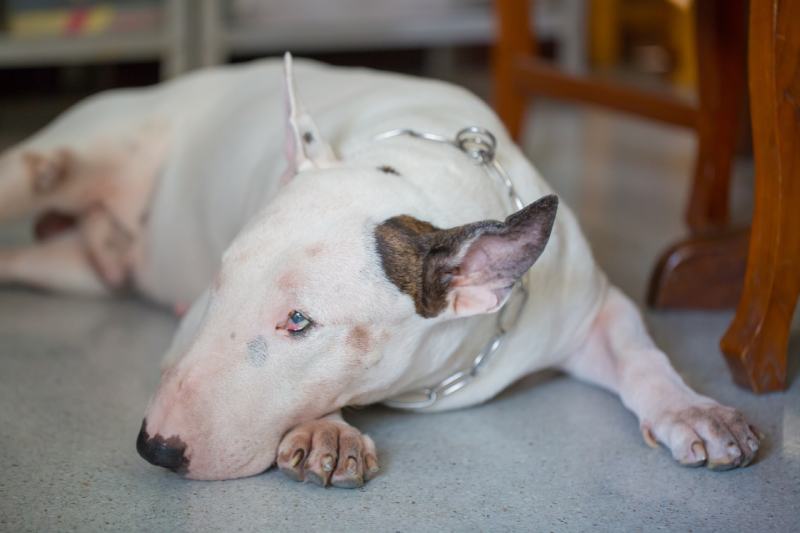
Tooth Decay
Tennis balls are hard and have a rough surface, which can cause dental problems for dogs as they chew on them for months or years. If you have a dog that likes to chew, it is advisable to avoid tennis balls and buy special toys for chewing. However, it is also recommended to supervise your pet when they’re playing with any toy to prevent accidents (suffocation or ingestion of foreign bodies).
Frequently Asked Questions (FAQs)
What Can Happen if My Dog Eats a Tennis Ball Fuzz?
The tennis ball fuzz is made of wool, nylon, or cotton and cannot be digested. However, in most cases, it will pass through your dog’s digestive tract, and you will see it in their feces. If you have a small dog (puppy, toy, or small breed), it is recommended to contact the veterinarian. These dogs have a small diameter of intestinal lumen, and there is a possibility that even a small amount of tennis ball fuzz can cause an obstruction.
Are Tennis Balls Safe for Dogs?
Tennis balls are safe for dogs if they play with them under your supervision. Many dogs like to chew on things, and tennis balls are no exception. They are made of rubber and felt, two materials that cannot be digested. Once attempting to swallow them, tennis balls can lead to suffocation or gastrointestinal obstruction, both of which are medical emergencies that can endanger your dog’s life. In addition, tennis balls can damage your dog’s teeth, especially if they like to chew on them constantly.
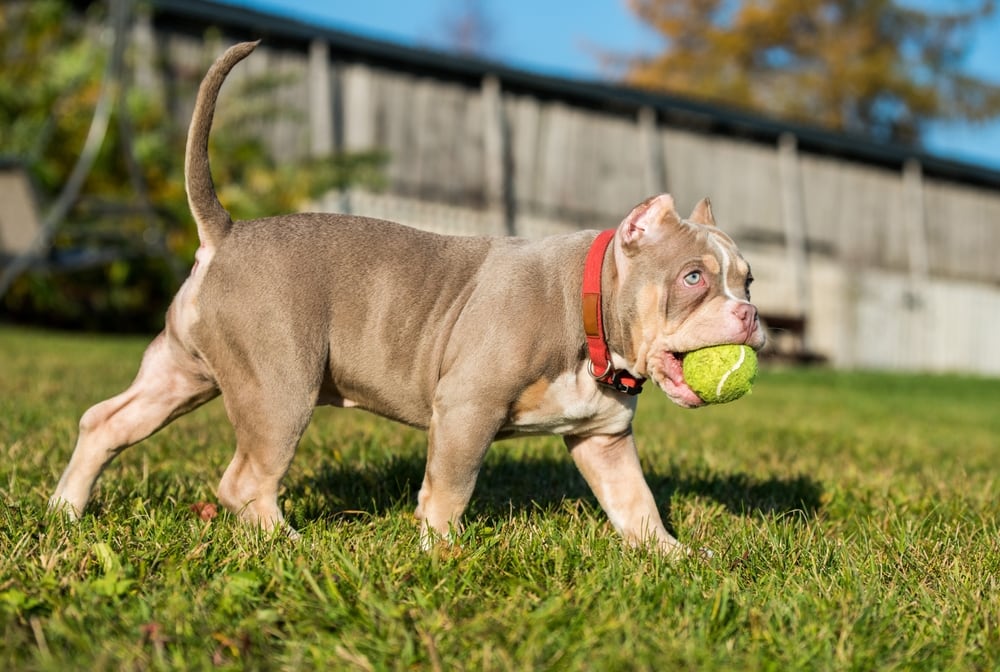
Conclusion
Dogs love to play with tennis balls. Unfortunately, these items are not safe for dogs unless they are playing with them under your supervision. They can cause suffocation or gastrointestinal obstruction. If you do not intervene in time, your dog can get very ill and the condition can become life threatening. It is best to call the vet as soon as you see your dog swallowing a tennis ball or parts of it. They can recommend inducing vomiting or taking your pet to the clinic for further evaluation.
Featured Image Credit: Wirestock Creators, Shutterstock




